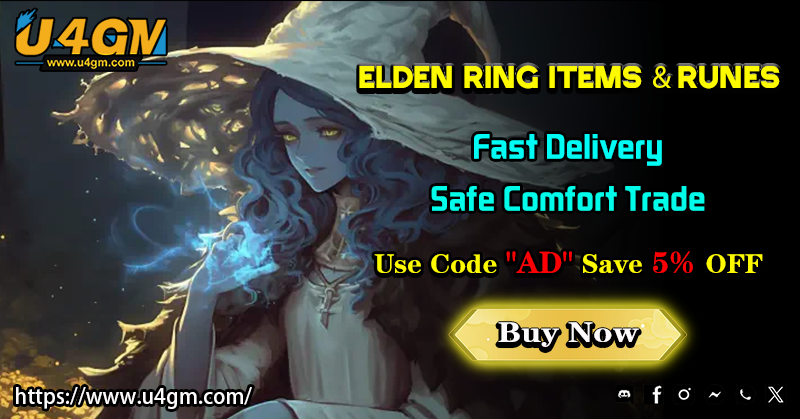When I first stepped into the hauntingly beautiful world of Elden Ring, I was overwhelmed—by the danger, the exploration, and the sheer difficulty. I remember getting destroyed repeatedly in Caelid, barely surviving fights, and struggling to upgrade my character efficiently. That's when I first encountered services like Elden Ring Nightreign Boosting and websites where you could buy Elden Ring runes. The idea was tempting: a shortcut to power. But it also raised a difficult question—is it ethical to buy runes in Elden Ring? In this article, I’ll explore six perspectives that helped me understand the complexities behind this decision.
 https://www.u4gm.com/elden-ring-runes
https://www.u4gm.com/elden-ring-runes
Not everyone has dozens of hours to grind runes. Between jobs, families, and other responsibilities, many players simply want to experience the story, explore the Lands Between, and have fun. For them, using services like Elden Ring Nightreign Boosting or choosing to buy Elden Ring runes can be a practical solution. From this viewpoint, it’s about accessibility, not cheating. As someone with a demanding freelance schedule, I can relate. Sometimes I just want to make progress without another two-hour farming session.
For players who see Elden Ring as a test of skill and endurance, buying runes undermines the game’s very purpose. These players thrive on overcoming challenges with perseverance and careful learning. To them, rune boosting cheapens the experience and breaks the game’s balance. They argue that every death teaches a lesson—and bypassing that through rune purchases is missing the point entirely. I’ve felt this pride myself after beating Malenia after dozens of tries. It was painful, but it was mine.
There’s a real-world economy behind rune selling. Services like Elden Ring Nightreign Boosting are part of a growing marketplace, often employing players from regions where such work provides meaningful income. While some criticize it as exploitation or gold farming, others view it as an opportunity. From this angle, buying runes isn’t just about cheating—it’s a financial ecosystem. As long as both parties are consenting, it’s hard to paint this in strictly black and white terms.
FromSoftware has created a game intended to be difficult, mysterious, and rewarding through effort. Buying runes circumvents this design philosophy. While the game doesn’t have strict DRM or anti-cheat for single-player rune boosting, developers likely see this as going against the spirit of the experience. However, the relative freedom in how players approach the game also speaks to FromSoftware’s hands-off ethos. The line between intended and allowed is blurry.
Elden Ring has one of the most passionate gaming communities in recent memory. Discussions on Reddit and Discord often dive into the ethics of buying runes. Some players see it as ruining the game’s integrity, while others take a live-and-let-live approach. Personally, when I mentioned I used a small rune boost to explore late-game areas early, half the replies understood, while the other half were disappointed. It showed me how divided the community really is.
For some, Elden Ring is more than just a game—it’s a personal journey. The process of failing, learning, and finally overcoming a challenge is deeply rewarding. When I resisted the urge to buy runes during my second playthrough, it completely changed the experience. It felt slower, harder, but ultimately more fulfilling. That growth wouldn't have happened if I'd relied entirely on boosting.
Whether you’re considering Elden Ring Nightreign Boosting or looking to buy Elden Ring runes, the ethical implications aren’t simple. They depend on your goals, values, and playstyle. For me, the first time was about saving time. The second time, I wanted to see if I could earn everything myself—and I did. Neither approach was inherently right or wrong. The beauty of Elden Ring lies in its flexibility, and in the way it invites each player to find their own path through its vast, broken world.
Essential Update: How to Buy Elden Ring Items Instantly and Safely
Comments